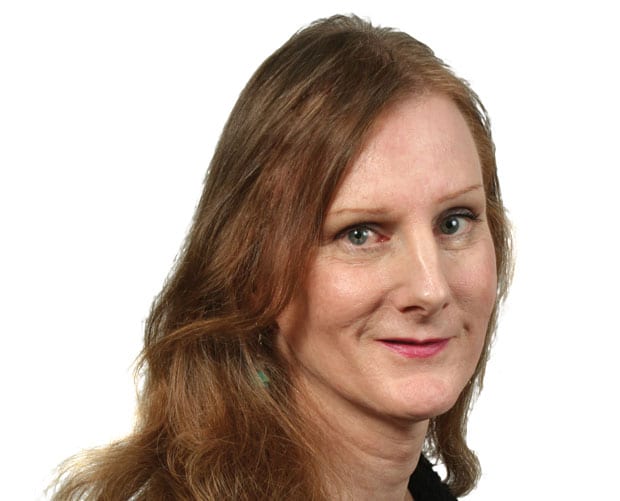Mission stays the same, but approach changes
JAMES RUSSELL | Staff Writer
In 2015, Trans Pride Initiative’s Nell Gaither joined a select group of other LGBT advocates from around the country to discuss with federal policymakers in Washington, D.C., the LGBT community’s barriers and successes under the Affordable Care Act.
Trans Pride Initiative worked with Resource Center here in Dallas to secure gender identity protections for public transportation passengers nationwide, and representatives were asked to speak before local organizations and at regional and national conferences.
TPI’s tireless advocacy isn’t going away in 2016. But the organization will be doing things a little differently.
The transgender advocacy and resource group also has a new space to try things out.
Beginning this month, every Monday from 4-6 p.m., Gaither and other TPI members will hold office hours in the storefront office of Community Pharmacy on Cedar Springs Road. The building, located next to the fire station and run by Walgreens, is used by other community groups as well, such as UT-Southwestern’s Community Prevention and Intervention Unit.
“It’s not permanent,” Gaither said of the arrangement, adding that TPI wants to see if it works out. Individuals who want to learn about the organization, participate in its work, report violence or get resources are free to stop in, she added.
But TPI is also changing its organizational culture. It will remain focused on access to life essentials like healthcare and housing for low-income trans people. But members to expand its work into areas of employment and education.
“Looking at what already exists in the area, we see a lot of organizations providing social support. What’s needed and missing are organization linking people to services, working with the transgender community and helping people advance our own rights,” Gaither said.
The change in approach stems from a lot of learning by doing.
Since its incorporation in 2011, TPI has run as an inclusive and democratic group. So board meetings have always been open to the public.
To cultivate the public support, board members and volunteers would get out into the community.
A “big part” of TPI’s networking activity included networking meetings providing a chance for transgender groups and resource providers to get and work together.
“We at first went out and connected with people then hoped people would see us at our events and get involved. But that never happened,” Gaither said. “So we wondered, ‘How do we structure differently?’”
Experimentation influenced the structural change. So did the Sylvia Rivera Law Project, a New York-based, collectively-run transgender legal and advocacy group with goals similar to TPI’s.
“We want it to be a more horizontal structure, reducing the board’s significance,” Gaither said. Instead of a board that trickles responsibility down to others, the members and committees take the helm.
“My idea was to originally coordinate across all [groups],” Gaither said. “I always had the idea to work with marginalized populations. And
I’ve learned you have to go to them.”
At the first open meeting for the community, TPI received interest in a number of committees, including the anti-violence, prison and healthcare committees.
“If a volunteer is serious enough we’ll have a housing committee too,” Gaither said. “Otherwise we’ll start working on those three committees and gradually build from there. It’s a process we’re learning on the way.”
This article appeared in the Dallas Voice print edition January 8, 2016.


